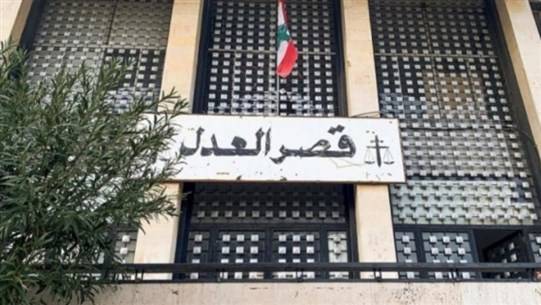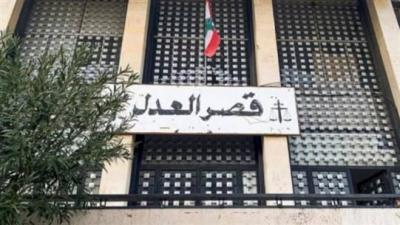Judicial developments accelerated yesterday regarding the lawsuit filed by the Speaker of Parliament Nabih Berri and his wife through their lawyer Ali Rahhal against the Public Prosecutor of Mount Lebanon, Judge Ghada Aoun. This was in relation to a recent tweet she published that included an old document listing the names of politicians, businessmen, and banking figures, including Berri and his wife, claiming they had smuggled tens of billions of dollars to Swiss banks. The past 24 hours witnessed a judicial precedent marked by the criminal prosecution of a judge.
In detail, Judge Aoun did not attend the Court of Cassation's public prosecutor's office to appear before Prosecutor Ghassan Ouyad and to give her testimony. Instead, her legal representative, Pascal Fahd, attended and filed a motion to recuse Ouyad before the general assembly of the Court of Cassation, citing "a dispute with him," in addition to arguing "that the Court of Cassation's public prosecution lacks jurisdiction in the lawsuit and that the competent authority is the high council of the Court of Cassation." However, Ouyad quickly moved to charge Judge Aoun with "libel, defamation, incitement of sectarian tensions, and abuse of power," referring her to the general assembly of the Court of Cassation for trial.
During this time, Ouyad heard the testimony of Berri and his wife's lawyer, Rahhal, who reiterated his complaint against Judge Aoun, asserting that the lawsuit is legitimate and expressing determination to pursue it to the end, stating, “There are dignities, and we will not back down.” Ouyad also received a new lawsuit, according to information, filed by Meryem Skaf against Judge Aoun after her name appeared in the document published in Aoun's tweet, prompting Skaf to threaten her with "a confrontation in the courts."
Judicial sources explained to “Nidaa al-Watan” that "the Code of Criminal Procedure did not distinguish between whether the crime attributed to the judge arose from their position or outside it," but affirmed that "immunity applies in both cases." They noted that the law "distinguishes between the degrees of judges and their commission of the crime," and mentioned that "if the judge is of the same degree as Judge Aoun, given that she is a public prosecutor, the complaint filed by the Court of Cassation's public prosecutor would be before the general assembly of the Court of Cassation, consisting of the first president of the court and its members, who are simultaneously the chambers of cassation; this court is considered the highest judicial authority."
The sources pointed out that the law allows the first president of the Court of Cassation to assign a judge of the same rank as the accused judge to investigate them if the latter has committed a felony, and to issue an arrest warrant against them, without mentioning whether the pursued judge has committed a misdemeanor. They explained that the arrest warrant does not become effective until it is approved by the president of the Court of Cassation, noting that the arrest occurs in a specific place determined by the public prosecutor.
They indicated that "the investigating judge appointed to investigate Judge Ghada Aoun applies the procedures adopted in the work of ordinary investigating judges and consults the prosecution's opinion on everything," clarifying that "if the act is of a felony nature, the decisions are raised to a special accusatory body composed of three judges of the same rank as the accused judge, appointed by the Supreme Judicial Council, and presided over by the highest-ranking judge; these procedures follow the same ones applied by ordinary accusatory bodies. If no crime is found, the judge is not tried," and they pointed out that the decisions of this court are final and not subject to appeal.
### Aoun Tweets
Yesterday evening, Judge Ghada Aoun resorted to “Twitter,” thus again violating the obligation of confidentiality, tweeting: "Now has the application of the law become a crime? My crime is that I requested the application of the law to lift banking secrecy. I assure you, depositors, that if the situation continues like this: a judge is prosecuted for daring to ask for the application of the law. Unfortunately, if this is the case, you will not see your money except in dreams. And you should know that for 30 years, the law on illicit enrichment has not been applied. I was the first to apply it. And the world turned upside down. Those who filed a complaint against me today suspended me from work because of that, and legally, they have no right to do so. I do my conscience, but if you want to recover your money, you cannot ask for judges from the moon. I offer myself in defense of the truth; I do not care. But who protects people's rights? Oh Lord, I have placed my trust in you; what can a man do to me? Now is demanding the application of the law, especially the law to lift banking secrecy, considered a crime? Is it right to prosecute a judge who demands its implementation? I regret to inform you, depositors, that in dreams you will not see your money."




